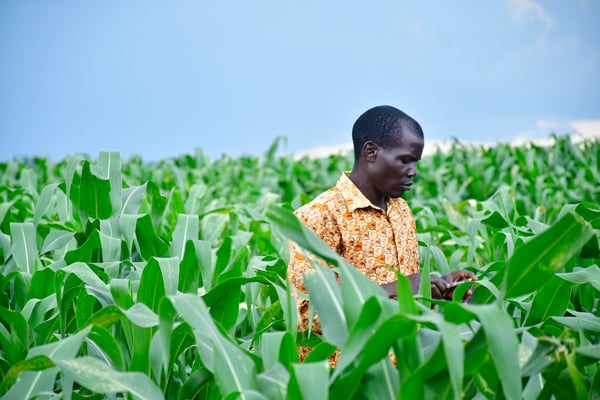Govt out to enjoy fruits of digital veterinary farming

Farmers undergo training at a Zoetis office in Kampala on June 3. The government has partnered with Zoetis to help farmers profit from animal husbandry by penetrating the global market. PHOTO | ARTHUR ARNOLD WADERO
The government has partnered with Zoetis—a global veterinary organisation—so as to help farmers to make dividends from animal husbandry by penetrating the global market.
Mr Bright Rwamirama, the junior Animal Husbandry minister, says the initiative will also expand knowledge and ease animal keeping among herding communities by bolstering commercial farming and reducing diseases that frustrate farmers.
Zoetis’s digital farming packaging run and administered online is done under the African Livestock Productivity and Health Advancement (ALPHA). The ALPHA initiative is working to advance livestock health and productivity.
“We have an opportunity to share with them the challenges and to request them to extend this programme because we still need the issue of diagnostics, disease control, and skilling both veterinarians and herding communities,” Mr Rwamirama said of the ALPHA initiative.
Now in its fifth year, the Zoetis ALPHA initiative has dramatically improved livestock health and farmers’ livelihoods in Uganda.
“They have been supporting research in animal medicine, diseases and they have provided us support that goes directly to the farmer,” Mr Rwamirama said, adding, “[About] 15 percent of human diseases are of animal origin. So when we control animal diseases, we save millions of people.”
Dr Gabriel Varga, Zoetis’s Regional Director of sub-Saharan Africa, said his team will use the networks and collaboration that have been cultivated with local institutions like Makerere University to offer training in diagnostics and poultry management.
“We cooperate with the Makerere University lab to extend the diagnostic to poultry…poultry farmers can rely on those results and make sure those birds are vaccinated on time,” Dr Varga said, adding, “We shall also train them on how to take samples and interpret results.”
Under digital veterinary farming, all interested parties—including farmers, veterinarians and distributors—will be required to register through a website portal to access the trainings and all other services.
“We have an open course for everybody and so they can connect through our distributors, offices in Uganda and our other distributors,” Dr Varga said.
Once enrolled, participants undergo comprehensive trainings conducted by experts such as scientists in academia, marketing, and livestock management through sessions conducted online and clustered in modules. These are planned and conducted on a weekly basis, with Dr Varga adding that “our members travel to different parts of Uganda”.
Follow up sessions by their teams that are spread across the country are conducted to provide hands-on skills on all lessons made on digital platforms.
“All trainings [done on digital platforms] are recorded because we have to gauge performance. We are doing it in a way that is traceable and also quantifiable,” Dr Varga said.
Packages also allow participants to further revisit the training and also train other persons in their communities, especially those that may not have access to such knowledge.
“We also have a lot of local meetings where we gather farmers and their leaders to meet technical specialists … We also send other messages through WhatsApp and other messaging Apps to ensure that wider and easier access to the information is done,” Dr Varga further revealed.




